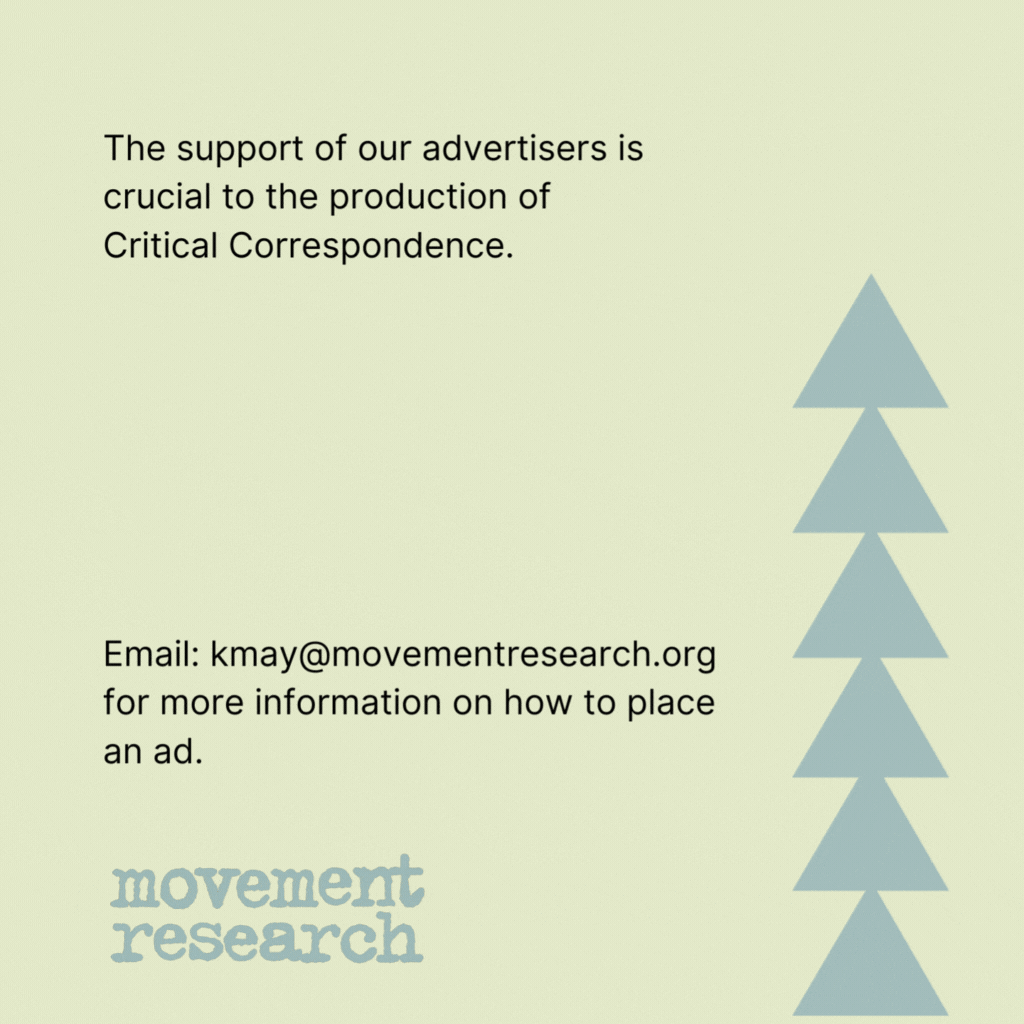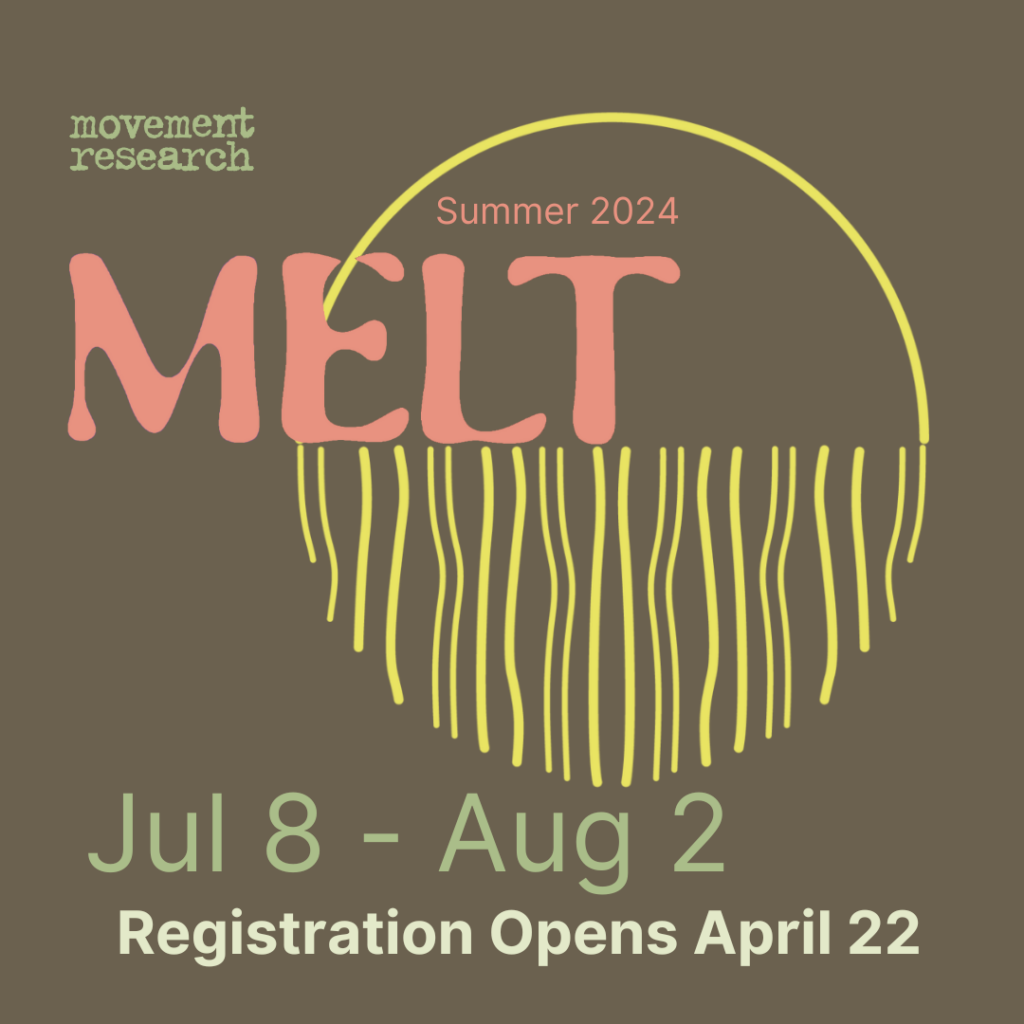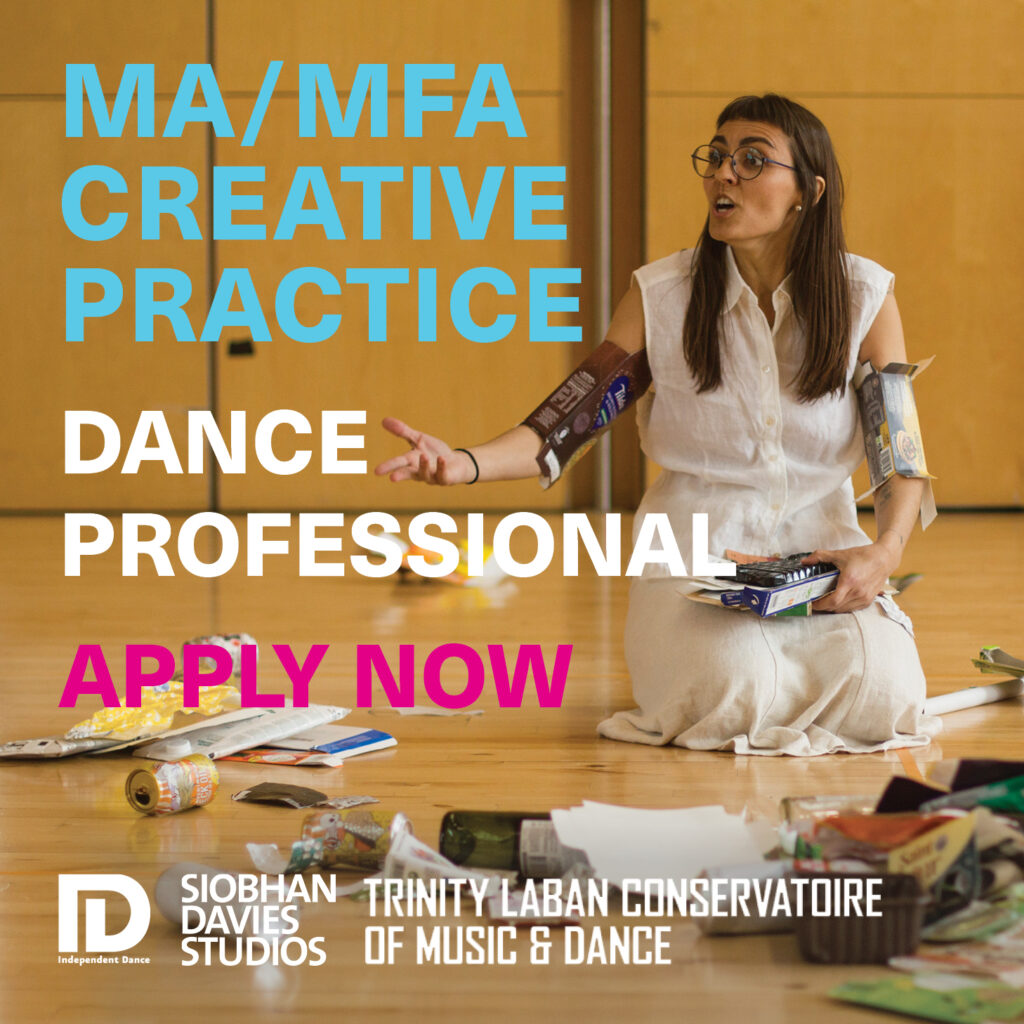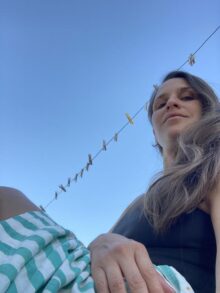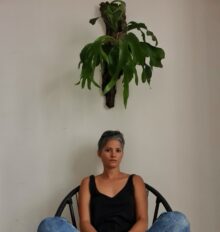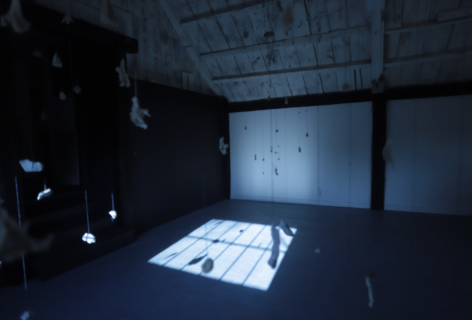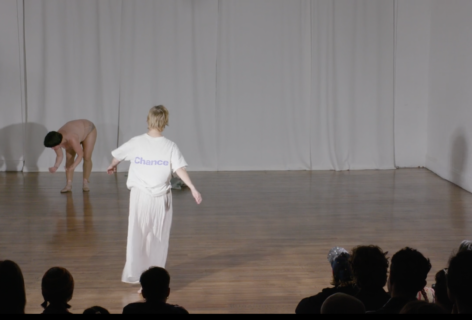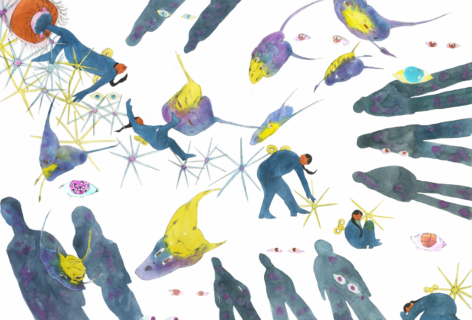In this virtual exchange of correspondence Vanessa Vargas and Betina Barrios share their day to day experiences with each other. They remember moments lived when they were only a couple of miles apart and they still shared the same city skies. In the exchange of these digital letters they reveal ways in which they live as immigrants and how that influences their writing and the way they move. What supports them is their friendship, the bond that they have developed, the habit of reading and the sea.
—Nicole Soto Rodríguez, CC Co-editor
Buenos Aires, September 1, 2023
«Aristotle’s opinion was that friends hold a mirror up to each other; through that mirror they can see each other in ways that would not otherwise be accessible to them, and it is this (reciprocal) mirroring that helps them improve themselves as persons. Friends, then, share a similar concept of eudaimonia (Greek for ‘having a good demon,’ often translated as ‘happiness’) and help each other achieve it.»
Answers for Aristotle: how Science and Philosophy Can Lead Us to A More Meaningful Life. CUNY philosophy professor Massimo Pligliucci.
Dear Vanessa,
Yesterday the day went out like a candle and I had to postpone my writing, but now I come back to it with this quote that I found on my Saturday morning reads. Every Saturday I take some time to read essays or notes that editors make available on the weekends as a way to give the readers an incentive to take some leisure time because we have more time to spare. And these words, you -and us-, have determined what we have done together and how we get along since day one. I feel that the way we met (because of a question) says a lot about us. The questions, Are you going where I’m going? Are you searching for what I’m searching for? Do you get me? When we heard each other speak, one resonated with the other, and our paths that afternoon ended up being the same. That day was so hot and finding water became our north. All the concrete pushed us through the air and we could only see the blue horizon.
I feel those gestures with no particular time, so much from a childhood that was so close but not the same, is what has kept us so close. The curious habit of looking for, recognizing, questioning. Fortunately it happened just as we were descending to the beach, to the shore, and maybe that is another thing that keeps us close, our contact, our correspondence. Writing to you makes me feel happy. I have felt enthusiasm to sit in front of the computer just to write this, as if we were arriving at the beach, or at a bar. It gives me peace that you are in Barcelona, I dream of the things we would drink or eat there like we did in 14th street.
Being from the Caribbean, women, marine in our ways and experiences, in movement. Being free, having independence, to be able to say and do the things you think of. Act in accordance, wouldn’t this be dancing? An ethics of dance? The body corresponds to the act of thinking, to be able to do what you believe in. How painful to think of doing that in what you don’t believe in. I couldn’t. The “motus” is the desire, the correspondence of thought and action. I’m happy that we got to generate a sum of all of this even at a distance, to be able to put body to my voice. And those words that bloom can gain a form in you. I can not recognize where they come from, like a pulse. When I see you dance, those restless words seem to me to take their true form, and it is not in a page, it is not in words, it is through a body.
Love you lots
Betina.
P.S. I think of how this letter starts with, Yesterday. In some ways we live there (and it would make this exercise even more loyal) and we try to reproduce it in the present. The poem, dancing, would be in yesterday, in an eternal fleeting moment, an ephemeral flame that is capable of reappearing and in some ways never consuming itself.
![[A cool toned image of the window of a subway door overlooking a bridge over a body of water. In the distance, a person rides their jetski.]](https://movementresearch.org/wp-content/uploads/2023/12/Hacia-Broad-Channel-3-VV-976x958.jpg)
Dear Beti,
Is Friday in Barcelona and I receive your letter with much excitement in the middle of our last days of the summer sun. Sometimes I go out to the street and try to catch it between my hands, other times I like to cross it with my whole body.
As I begin to read your letter, I remember that first year in New York as an immigrant, I had so many questions and it was so difficult to try and find the answers. Something broke in me forever, the body is so fragmented, there is so much dizziness, the memories, the love that was spread across, those experiences occupy blurred spaces. Sometimes it is difficult to distinguish concrete realities from dreams and desires. Time feels so stretchy and it’s not enough to describe ubiquity; it goes beyond the experience of being in a lot of places at once. In that year (the one we met) I was trying to find the sense of fracture, of being in that constant liminal state. From there my dance practice started to move away from forms to embrace uncertainty and exile as places of enunciation. Also giving importance to the ways we relate to others, to all of that which surrounds me.
That is why I think that the questions that evoked us that day of summer at Broad Channel (curiously in a rail or a bridge over the sea) allowed us to meet. It was a sort of a mirror effect, some sort of luck to be able to see one in the image of the other, getting to know our uncertainty. I have the certainty that in those questions, we were looking for each other, to be able to recognize ourselves in something, in someone, to inhabit with the body, to be in space; but the only thing that was certain was the sea. Generally no one thinks of New York as an Island. The city has received so many people through its ports. Water can always portray the experience of the immigrant, not only because its malleable state is the best to exist in, but because it allows us to find a way through the currents. It is a place for hope, because it sustains the illusion of landing ashore, to a safe port, or also a place of contemplation, because sometimes there is no other thing to do than to experience the simple presence of the body.
Our contemplative outings started overlapping in every gathering with the heat of the summer and the conversations in the emergency exit at my apartment in Bed-Stuy (or in that loft at Classon). It did not take that many nights for the affection to start as our friendship developed. Affection did not need a physical form to begin, for me this is the way that our intensities meet, the way in which we care for each other, in how we communicate and collaborate. Affection moves through my body like in a dance, it transforms itself, a word form you translates into a gesture from me, it shifts and reconfigures space traveling between Buenos Aires, New York, Caracas and Barcelona. In the form of a poem, a video dance or a message from WhatsApp.
It seems so powerful the way that migration finds us creatively, especially by way of correspondence, bodies, new technologies at play. Our relationship, creatively, affectionately, is a way of intensity that reveals our friendship and all that it is capable of. It is simply the movement of bodies seen from the potentiality of our encounters and what we can do with what we feel. Affection has shown us where to move as women, immigrants, latinas-marines, as artists that imagine together. As friends in accordance with our capacities (ours and shared, personal and interpersonal) to put more clearly it contributes to our practices, experiences and knowledge. That knowledge that we build together with a specific or sometimes blurry and ambiguous context.
Uncertainty offers us a side of movement where we have been able to explore without the need to think of what’s to come (dancing, writing) particularly in a liberation space that we have built from a distance. Desire is hope, Beti, and it is particularly desire that allows us to move freely. That is the only certainty we have, besides the sea, that allows us to keep being close. Building possible futures. Intensifying the moments we do meet (in an improvisation of your poem on the roof of a house in Brooklyn) or in the multiple potentialities of our friendship. How lucky are those of us who can do as they say, being owners of our bodies.
I leave with the excitement of our next encounter.
Barcelona, September 8, 2023
![[The interior of a subway cart passing over a body of water with orange and yellow seats; two facing the left and three facing the front. Above the three seats, hangs a poster ad. The screen above the window indicates that the train heading to ‘ROCKAWAY’.]](https://movementresearch.org/wp-content/uploads/2023/12/Hacia-Broad-Channel-4-VV-976x959.jpg)
Buenos Aires, September 10, 2023
«Space is a body in transit»
(I think I borrowed it from a publication of Consuelo Méndez on Facebook)
«Dance in the body you have»
Agnes de Mille
My Vane, here we are again. We occupy a common space through this strange body-machine, screen, white light, under another light that illuminates a keyboard. I press every letter and it forms a network. This letter starts on a fake page, on a simulation of what a page is, with its measurements and all. These letters start forming under a typography that is not mine, it is not even calligraphy, but it is the type of letters that we can write now. These electronic letters, this electronic life. It infuriates me that there are so many internet outages in my house. It is a prison that issues bills. And it happens that the same internet company serves everyone around the block. I can’t change internet providers. I feel a great urge to rebel against it. But I can’t. Just like our country has not been able to rebel against its system. The only true rebellion is love, patience, rechanneling tough emotions, and rage.
There is a punishment for occupying spaces. First because of migration, the body had to leave. To have to leave the countries, their walls, and all the affection that took part in it. Old loves seem to have blurred and become yellow in memories. With migration does life become multiple? Do we turn into cats? We both live with three cats. What does this mean? There are recurrences, landslides, correspondences in so many places, cities, necessities, practices, fears. The same way of living, quietly working. How difficult it is, but how important all of this that we share: finding each other in a common landscape, on the shore, on a beach. And that dancing and writing can become water and a shore, that words and the fragmented body can become drops of water, grains of sand that come together to set up a possible view that lives under the same signal.
To migrate and dance, to write and travel. To read.
I think that is the key: reading.
To have read each other, to read to each other, to read together. Bodies, accents, maps, houses. Exploring possible territories: ladders and terraces? I am not sure, did we go together to the Salvation Army in front of Quincy’s house? I did go frequently, I believe we also went together. The place where the furniture came from, cups and dishes from the loft. Is this also a product of migrating? Inheriting unknown artifacts? Reconfiguring their worth? Interpreting inheritances that you could never foresee? Who sat in those chairs, ate in those plates, drank from those cups and used those utensils? Who has lived in those houses that we occupied disorderly between their and our cities? How many opportunities of reading has traveling given us? The yoga classes we have taken together as opportunities for the body to dance under fixed postures that enslaves us and moves us. How much happiness is in all of this. Anyway, this letter is a bit dispersed, but this is how I feel today. Is this how today feels?
I love you every day.
Betina
“In such an unpredictable world and in the universe we perceive,
dance is there to fill a void and try to communicate”.
Hercilia Lopez
Beti, dear. I am writing this letter on a Saturday and not on a Friday as we agreed. The week was spent in a creative residency, and today I am coming out of the trance we need to be in for things to happen. As you know, in my doctoral research I am exploring the idea of blurring the boundaries that exist between theory and practice in the living arts, between archives and corporeality, between the dance studio and the classroom. This idea of going to the edges, going in and out, investigating the periphery and the center of the history of dance in Venezuela, of what moves and affects me as a Venezuelan dancer. I presented this project last year at Movement Research at Judson Church, but I felt it was still a work in progress. Between motherhood and migration, it has taken me two years and two countries to complete this choreography.
This week I was fortunate enough to be able to give myself back, walk into the dance studio and occupy the space (I confess, I get dizzy every time this happens). I was on an artistic residency here in Barcelona, and in the process I had an epiphany that I did not expect: This metaphor that I insist on in my thesis, which is also a choreographic research, comes from the feeling of always being in the middle, on the threshold, between two situations, two countries, two universes; of finding myself moving between marginalized spaces and central places, of treasuring videos to return to those moments when memory fails, or of living intensely with the body, because a photograph can get lost on the way, but also because the memory it offers is not able to contain life. So this space in -half- that I am exploring among the archives and documents of the living arts in Venezuela is nothing more than the idea of finding peace and understanding myself from the body in this liminal zone that means to migrate.
But who else than you to understand us among the boxes and memories scattered between cities. Some in Buenos Aires, in my apartment in Brooklyn, and others in Caracas or Barcelona. We have talked about it so much, drinking bottles of wine in used glasses, sitting on a sofa I found on the street, through text messages, voice messages, or, more recently, through these letters, with the typography you chose for this conversation, and that you say does not belong to you. Things that are not entirely ours, Beti, but through which we have been able to build a form of communication, of creation, of imagination, of friendship. So I understand the zeal for our craft, perhaps it is the only thing that accompanies us and is truly ours. No one can take away what we have danced, they say.
As I write to you, I realize how similar it is to migrate from the practice of improvisation to dance: to inhabit with the body an inhospitable space that does not belong to us, to be able to reconfigure it, to be able to express ourselves from there, and then to leave it, to know how to let go and move on. As in dance, migrating has helped me to go deep into my body and to realize that I have been many bodies, that I have created and that I have disappeared (I think this is what you are referring to when you talk about multiple lives). Dance has allowed me to be flexible and kind to my body, to know how to wait, but above all to know how powerful friendship is on the road, and how important you have been in my life, the time we shared, your poems written in a notebook where there is also a shopping list or an errand to do. I remember the day I went to the loft on Quincy Street to rescue some of your things: your bike and a box of notebooks. I have kept your notebook ever since, which could very well be a book of poetry.
In trying to answer your question, I think part of migrating has to do with picking up the pieces that others leave on the street, giving them another name, another chance, maybe because we understand the value of the stories behind the forgotten objects.
Yes, we went to the Salvation Army together, the one in front of Quincy’s house, that day we found nothing. I don’t think it exists anymore, by the way.
I love you very much.
Barcelona, September 16, 2023
![[Two red, one blue, and one yellow colored balloons hover amongst the metal bar of a subway cart.]](https://movementresearch.org/wp-content/uploads/2023/12/Hacia-Coney-Island-4-976x971.jpg)
Buenos Aires, October 3, 2023
My Vane, just imagine. It may not exist anymore, that’s how it is.
That’s how cities are, a kind of variable set with natural and artificial eruptions that change dimensions, grow or cut themselves to the sides, up and down, and they obsess me. They resemble writing.
William Niño Araque said, “The text of the city”. I think he is right in his metaphor (and others). Cities are like books, the city and books, they are very similar. Boxes that cannot be classified, towers that can be stacked and simulate buildings, walls, walls… Why is a novel a novel, or a poem, or a short story? I have been told that my poems are stories, that they are not poems. I like that. I like that they are emancipated from assumptions, that they are something else, that they are not stiff texts on pages, that they become voice, that they become body, the body of the text, the text that dances. You helped me to feel that. When I saw you dance, I felt like writing, and also like crying, and writing makes me cry, and so does love.
I don’t know what it is that happens to me with these letters, but I find them exercises. And I’m going to keep this idea and try to give it form. A practice or an exercise is something that also happens in “no time,” which is the disposition to do it, which is also to gather the conditions for a performance, for an exchange. Practices, however solitary they may be, always involve other subjects besides the lines that delimit our body, our skin, that limited contour that gathers and individualizes us.
On my trip to Patagonia, I was on the trails that lead to the Fitz Roy and Torre mountains. The road that leads from El Calafate to El Chaltén, the town where the trails to see these mountains start, must be one of the most beautiful on the planet. It is an infinity, an open thing, a desert full of animals called guanacos, which are like vicuñas or llamas or camels. They are beautiful and they are there watching and eating, written in the landscape. They are grouped on the sides of the road that extends a little more than 200 km. On the road, rivers, valleys and lagoons are bordered; and suddenly the golden hills appear like diamonds of light, sparkling needles that you approach without losing sight of them, because they take on a dimension while standing still. To climb them, you sleep in El Chalten and nestle in the foothills of the mountains.
You have to prepare for the trail. There was a lot of ice and snow, so we rented crampons and poles to get into those hills for two full days. Going into the mountains is one of my favorite things to do and when I’m in the mountains I think about how I grew up in the mountains and my body knows it. I left school and went to the ravines of Avila, those hills where I slept several times and knew many of its paths. A sublime teacher because my body does not forget, it is a community. Walking is like writing and it is like dancing, it is a practice and a discipline. You have to combine the ability to see with the movement of the body, to measure the hours and the kilometers. You enter a labyrinth of forests, rivers, stones, birds, paths. I was there and I thought I should write to you, but I also thought about who I would be and what I would write when the trip was over. In hiking, the body rubs against the world in a precious and valuable dance that makes you feel life between your fingers, hunting for twigs, touching the rare fruits, listening to the river, feeling the movement of the sun.
I wish you, my friend, to know Patagonia. May the movement and the words always take us to the limit, to challenge it, to embody it, to shape us with every rock we stumble upon and try to climb. I leave you all the leaves I saw, the animals, the glaciers, the lagoons. I hope you feel something of what I write, as if you saw it. To do that, be it a story, a poem, is literature, and it is enough for me, because what I always dream of is the journey. And by putting this addiction into practice, I met you. So that’s it, you’ve given me a lot.
I love you.
Betina.
![[The interior of a subway cart at its last stop on Coney Island, as indicated on the screen above a window. The window overlooks a colorful amusement park. The bench seating is of a blue color, and a map of New York City hangs to the right of the window.]](https://movementresearch.org/wp-content/uploads/2023/12/Hacia-Coney-Island-1-976x886.jpg)
Last letter.
I am in front of the blank, empty, bright and cold page that the computer offers me, the one that has been the support that has allowed us to continue nurturing this friendship, to write the last lines of this epistolary exercise that is nothing more than a declaration of love at all costs, and when I say coast, I mean the whole sea that has always separated us, but that has also united us.
I am thinking of the friendship between Lygia Clark and Helio Oiticica, in a series of affective exchanges they called Letters (1964-1974), (inspiration for these letters), which inform a radically powerful bond between these two Brazilian artists. Both achieved a bridge between the body and the word that I have always found fascinating. To be able to feel their practices, modes of relationship and sensibilities between the lines of each letter, which not only account for shared aesthetic forms, deep questions about living art, the potentialities of the body, sexuality and domestic conversations, but are also a light to perceive a creative context dominated by the culture of their time, the ghost of dictatorship, censorship, disappearance of bodies, trauma, exile; and at the same time to feel creativity, imagination and creation, from a deeply intimate and personal dimension. So I decide to bring you this last letter with gratitude, as a tribute for having inspired me to write these words.
Coming also from the profession of journalism, I have the taboo of talking about myself. Writing in the first person is not allowed, it is not objective. When I do, I try not to put words on paper that I did not say myself. Everything is always a quote, a testimony of others, an interview, it seems that what I say is always crossed by someone else, which I cannot do with the body. When I dance, there is no way to refer to another being, to another experience. Every gesture, every movement always ends up exposing me, there is no way to separate my body from everything that contains me. I imagine that for this reason, there was something in me that made the relationship between these two friends stimulate me, and I invited you to write moved by this Carioca provocation.
Therefore, Beti, I celebrate your poetry. It is really risky the way you overflow on paper, which, unlike dance, is printed, but somehow it is also alive. Your poetry says exactly about you, all the words, the letters, the commas, the accents, are the measure of what you communicate. I feel lucky to have you as a friend. When I read us, I believe that our solo practices, poetry and dance, have been able to meet and take the form they need. They move as one body, they move, they reorganize space together, they move with sensitivity as we listen to each other, they happen in the exact time we have built for ourselves. A distant relationship, defined by migration, precariousness, time zones, geographical borders and limits. We may calculate our encounters in a different chronological time than what happens on the street, and so we get lost and find each other again, then a text appears, a phrase of movement, and suddenly they take their own path because they are able to be alone.
I would like to visit Patagonia with you one day. When I read these letters, I think of the strength of our friendship, I am invaded by the idea that I have not seen you for many years, Beti. Writing reminds me how much I miss you, how much I miss talking to you, telling you things, sharing a glass of wine. But I feel that we have learned to live at a distance. At the beginning of this letter I said it would be the last, but it is not. These letters speak of the way we have shared our friendship, our practices, our work together, of the countries we live in, of what we are fleeing, of possible futures, of our times, of artists, of women, of migrants, of navigators. These letters are bridges across the sea.
Barcelona, October 3, 2023
![[Vanessa and Betina are sitting together in Long Beach wearing bathing suits, sunglasses, and smiling.]](https://movementresearch.org/wp-content/uploads/2023/12/Vane-Y-Beti-Long-Beach.-Circa-2015-976x973.jpeg)

![[Two subway doors overlook a bridge above a body of water during golden hour.]](https://movementresearch.org/wp-content/uploads/2023/12/Hacia-Broad-Channel-1-VV-976x1240.jpg)
